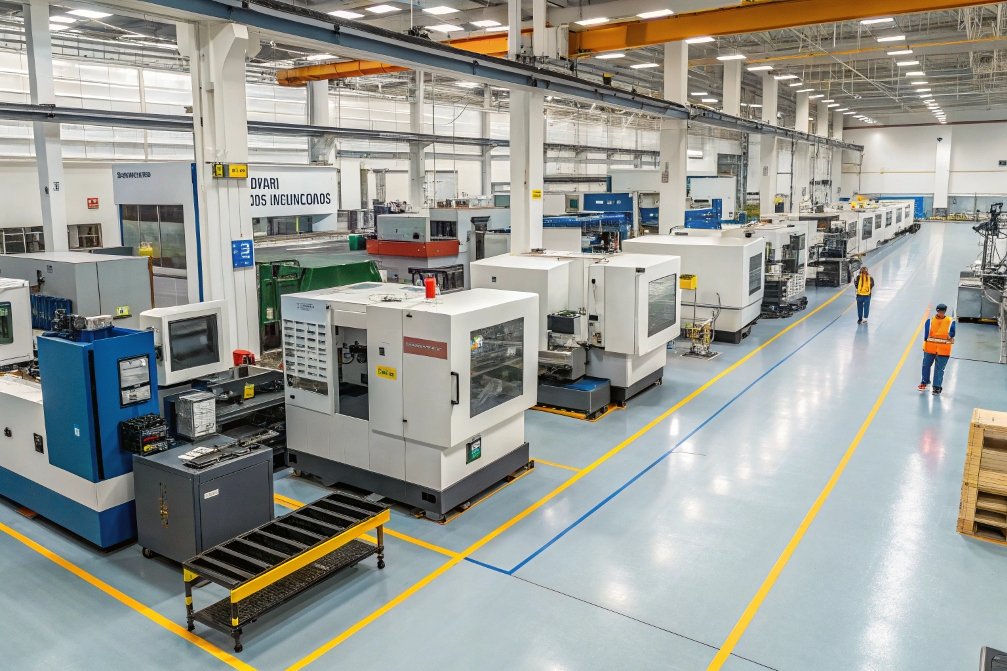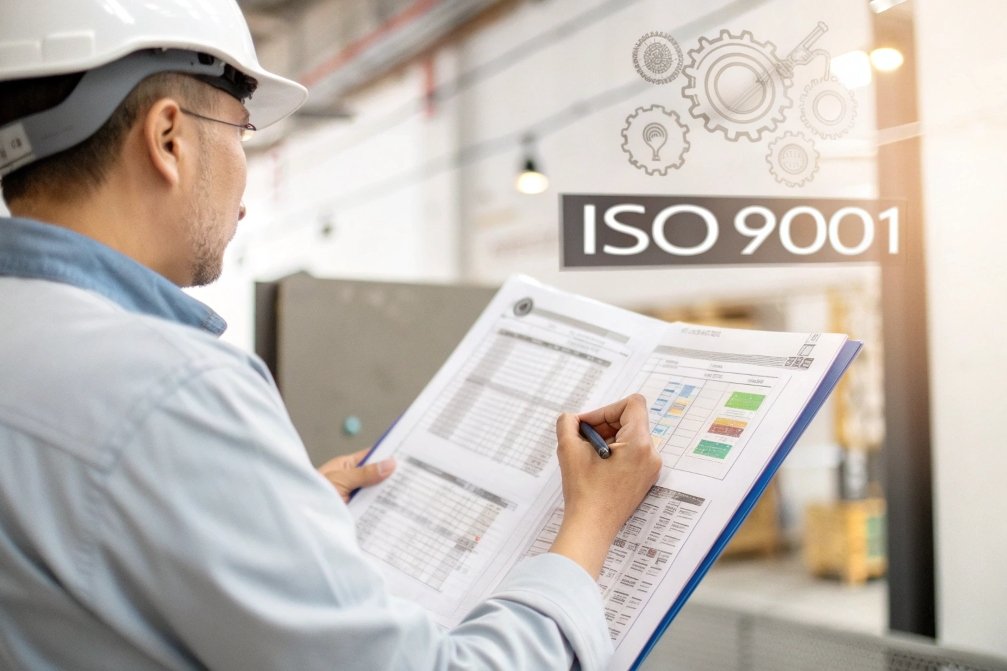
When I’m choosing a supplier for customized parts, I know how crucial it is to find someone who can deliver quality, reliability, and precision. A reliable supplier doesn’t just meet my technical specifications; they also ensure that my parts are delivered on time, within budget, and with the highest quality standards. So, what should I look for in a supplier to make sure I’m partnering with the right one?
When selecting a customized parts supplier, you should focus on their ability to meet specifications, their quality control processes1, reliability, and their communication and customer service. The right supplier will be a long-term partner in achieving your production goals.
Let’s dive into the key factors to consider when evaluating a customized parts supplier2, so you can make an informed decision.
How Do You Assess a Supplier’s Ability to Meet Your Custom Parts Specifications?

Assessing a supplier’s ability to meet your custom parts specifications involves reviewing their technical expertise, manufacturing capabilities3, and past performance. You should also ensure they have the equipment and skills necessary to produce the precise parts you need.
Your custom parts need to meet specific design and material requirements, and you need to make sure the supplier can deliver exactly what you need. Here are the steps to assess their ability:
1. Technical Competence and Expertise
One of the most important factors is the supplier’s technical competence. Can they understand and meet the precise requirements of your custom parts? Review their engineering team’s qualifications and experience with similar materials and manufacturing processes. A supplier with a strong technical team ensures that the parts will meet all the necessary specifications.
2. Manufacturing Capabilities and Equipment
The supplier should have the right tools and equipment to manufacture your custom parts. If your design requires advanced machining, injection molding, or additive manufacturing, ensure the supplier has the necessary technology. Ask about their production capacity, machine precision, and any specialized equipment they use to produce parts to your exact specifications.
3. Quality Assurance and Testing Capabilities
Review their quality assurance process and whether they have testing procedures in place to ensure the parts meet your specifications. A supplier that conducts regular inspections and testing throughout the manufacturing process will be better equipped to deliver high-quality, precise parts.
4. Previous Projects and References
Look at the supplier’s previous projects and ask for case studies or references from other clients. If they’ve worked on similar custom parts, they should be able to provide examples of their capabilities. Previous success in delivering parts to your required specifications gives you confidence in their ability to handle your order.
| Assessment Factor | Key Questions to Ask | Why It’s Important |
|---|---|---|
| Technical Expertise | Do they have experience with similar parts? | Ensures they can handle your technical needs |
| Manufacturing Equipment | What type of machines and technologies do they use? | Guarantees they have the tools to produce precise parts |
| Quality Assurance | How do they conduct quality control and testing? | Ensures parts meet required specifications |
| Previous Projects | Can they provide case studies or client references? | Verifies their ability to deliver high-quality results |
What Factors Should You Consider to Ensure a Supplier’s Reliability?

Supplier reliability is a key factor in ensuring smooth production timelines and avoiding delays. When evaluating a supplier, consider their on-time delivery performance, financial stability, and communication practices.
Reliability can make or break your manufacturing process. Here’s how to evaluate a supplier’s reliability:
1. On-Time Delivery Track Record
A reliable supplier should consistently meet delivery deadlines. Ask for evidence of their on-time delivery performance—whether through testimonials or a historical overview of their past orders. A supplier with a poor delivery record can disrupt your project timeline, causing delays and financial losses.
2. Communication and Responsiveness
Clear and timely communication is crucial to a successful supplier relationship. A supplier who is quick to respond to inquiries, provides regular updates, and is transparent about potential issues ensures you stay informed throughout the production process. Assess their responsiveness during the initial stages of communication to gauge whether it will continue throughout the relationship.
3. Financial Stability
Financial stability is an important but often overlooked factor. Suppliers with unstable finances may struggle to meet orders, invest in necessary machinery, or pay their workers on time, which can impact their ability to fulfill your orders. Ask the supplier for information about their financial health, or look for third-party credit ratings.
4. Supply Chain Transparency
Reliability also depends on how well a supplier can manage their own supply chain. Ask about their inventory management, sourcing, and logistics processes. Suppliers who have control over their supply chains are more likely to deliver consistently and avoid unexpected disruptions.
| Reliability Factor | Key Questions to Ask | Why It’s Important |
|---|---|---|
| On-Time Delivery | What is their history of meeting delivery deadlines? | Prevents delays in your own production schedule |
| Communication & Responsiveness | How quickly do they respond to queries? | Ensures transparency and smooth project flow |
| Financial Stability | Can they provide financial references or reports? | Guarantees they won’t run into financial issues that affect their service |
| Supply Chain Transparency | How do they manage sourcing, inventory, and logistics? | Ensures consistent and reliable supply management |
How Can You Evaluate a Supplier’s Quality Control and Testing Procedures?

Evaluating a supplier’s quality control (QC) and testing procedures ensures that your custom parts meet the required standards and specifications. A robust QC system reduces defects and ensures consistency.
Quality control and testing are essential to ensuring that your parts are produced to the highest standards. Here’s how to evaluate a supplier’s quality control systems:
1. Standard Operating Procedures for QC
Ask the supplier about their quality control procedures. Do they follow internationally recognized standards like ISO 9001? Do they have documented processes in place for inspections and testing? A supplier with established and standardized QC practices is more likely to deliver consistent, high-quality products.
2. Inspection Methods and Frequency
Inquire about the types of inspections they perform throughout the manufacturing process. Do they inspect materials before production? Are parts checked at each stage of the process? A supplier that conducts multiple rounds of inspections during production can catch defects early and prevent them from making it to the final product.
3. Testing for Functionality and Durability
Custom parts may need to undergo functionality or durability testing to ensure they perform as expected in real-world conditions. Does the supplier have the capacity to perform stress tests, environmental tests, or load-bearing tests on the parts? These tests are particularly important for parts used in critical applications, such as machinery or automotive components.
4. Third-Party Testing and Certification
A supplier that can provide third-party testing results or certifications adds an extra layer of confidence. Third-party testing ensures that the parts meet external standards and are validated by a neutral party. Ask whether the supplier works with any accredited testing agencies to verify product quality.
| QC and Testing Factor | Key Questions to Ask | Why It’s Important |
|---|---|---|
| QC Procedures | Do they follow industry-standard QC protocols? | Ensures quality consistency and reliability |
| Inspection Methods | What inspections are done during the process? | Identifies defects early and reduces waste |
| Functional Testing | Do they conduct any performance or durability tests? | Verifies the functionality of parts in real conditions |
| Third-Party Testing | Do they use third-party testing agencies? | Adds external validation to the quality of parts |
Conclusion
When selecting a customized parts supplier, it’s essential to assess their ability to meet your specifications, ensure their reliability, and evaluate their quality control and testing procedures. By focusing on technical expertise, manufacturing capabilities, communication, and QC practices, you can choose a supplier that will help you achieve your project goals on time and within budget. This careful evaluation will ensure that you receive high-quality parts that meet your exact specifications and performance requirements.
Understanding quality control processes is crucial for ensuring that your supplier meets high standards, which is vital for your production goals. ↩
Exploring this resource will provide insights on selecting the best supplier for your specific needs, ensuring quality and reliability. ↩
This link will help you identify essential manufacturing capabilities that ensure your supplier can meet your custom parts requirements effectively. ↩

